Helpful ideas from Early Years.
“Children should copy first and understand later”.
This statement from a well-meaning but pushy parent was one of the big factors which drove me to start Rhythm Circle.
About 5 years ago, I was struggling to engage with a new transfer student – a 5 year old boy who had a very poor understanding of musical elements despite having had a year’s worth of piano lesson.
I explained to his mother that I would like to spend some time helping her son gain had a better understanding of musical elements and notation instead of pushing on with pure pianistic skills. However, she disagreed strongly, and insisted that I taught him the piano by rote, saying “Children should copy first and understand later”.
This was immediately abhorrent to me as a teacher and as a parent: how could we hope to raise a new generation of critical thinkers if we began by bludgeoning and disrespecting the natural intellect and learning capacity of a child?
She was not entirely wrong, however. Children ARE natural and curious parrots – I suppose it is part of their survival instinct to copy the actions of their grown-ups.
But educators and parents can do so much more to channel that natural instinct whilst nurturing the child’s intellectual faculties at the same time. The learning journey does NOT need to be dumbed down just because the learner is a child. This sentiment is felt strongly by Zoë Challenor , the founder director or B’Opera and a working partner on the Digital Games Project.
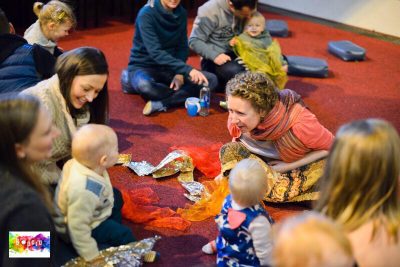
It was really a lucky accident that brought me and Zoë together in June 2019, and we have since found a shared ethos of bringing sophisticated and high-quality musical experiences to young children.
The incident with the pushy parent drove me to think about how I could encourage children to engage more with music: not just as operators of an instrument, but as curious explorers who WANTED to understand every aspect of sound.
Music is organised sound. There are several different elements which work together to create music. A small child experiencing the world is constantly bombarded with a constant influx of information. He/she learns gradually how to filter out less interesting or less important bits and to focus on specific elements.
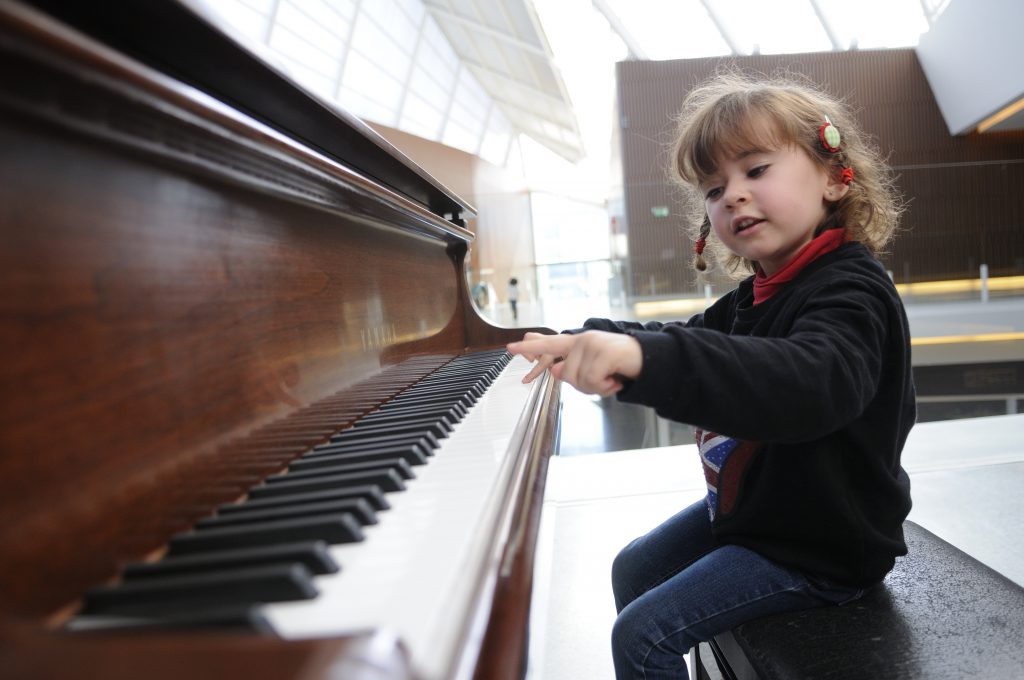
For a young child, sound exploration is no different to…. 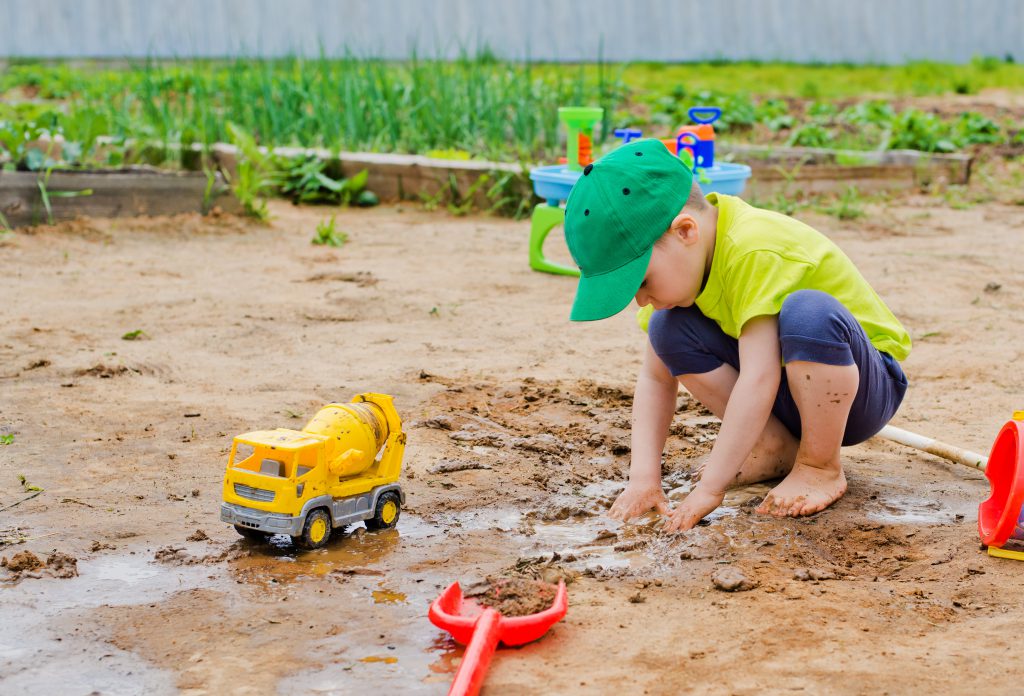
….mud exploration!
To promote concentration amongst my youngest students, I embraced some commonly used concepts in Early Years education. One of the most useful was the Montessori practice of ‘isolation of quality’. This meant eliminating all other elements apart from the one which you wanted the child to learn. Very useful for children who are easily distracted as it promotes focus.
This idea was incredibly helpful in my work with neurodiverse children: one of the common characteristics shared by those who have learning differences is that they experience sensory overload, and do not have the ability to filter out less important information.
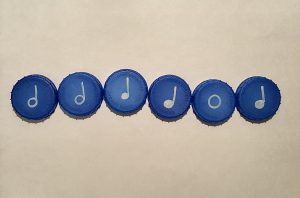
Whilst recording musical examples for the Rhythm Circle Digital Games Project, this meant recording the same piece of music played in different ways to demonstrate the difference between loud and quiet instead of two different pieces of music which demonstrated the same thing. This was particularly important as chords are often mistakenly associated with loud music and single notes with quietness.
When choosing shapes to use in Dynamic Dots, a graphic score activity , this meant using different sizes of a single shape , colour and material. The size of that shape is the single changing element which corresponded to the ‘size’ of a sound.
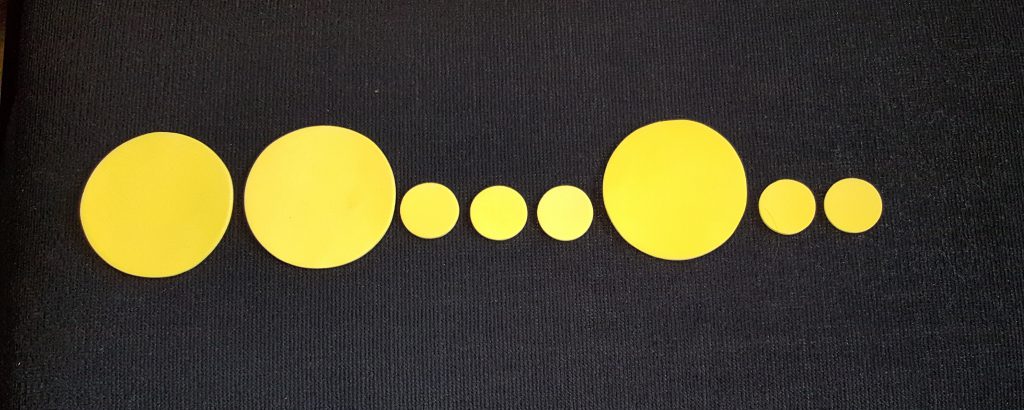
Learning by exploratory play was also another idea from Early Years education which was particularly useful. For me, this concept kicked of the creation of many musical games and activities (e.g musical versions of Bingo, Tic Tac Toe, Bowling).
Scientists tell us that when knowledge or skills have recently been learnt, new neural pathways are created in the brain. Repetition of that knowledge strengthens the pathways and aids long term retention. Since, children find games and activities fun they will want to keep repeating those games. So musical games REALLY help learners retain music knowledge !
B’Opera’s presence and support in this project has been a strong reminder about respecting the learning journeys of our youngest members of society – both in the depth and breadth of experiences offered to them. So many neurodiverse children have delayed learning and it is crucial that the Digital Games Project understands how to leverage good Early Childhood working practices to support their learning.
In the next blog, I will be charting my digital working partnership with Trifort Solutions.
